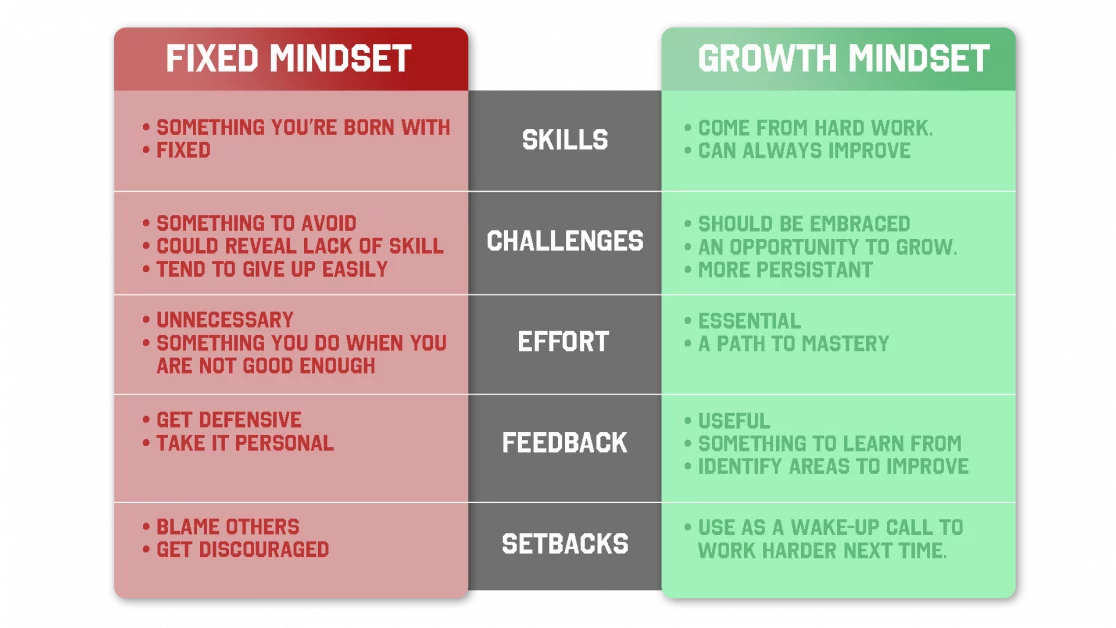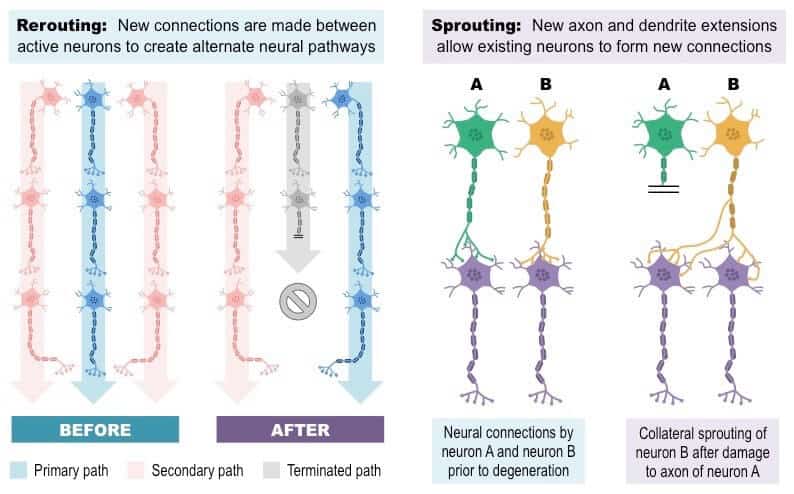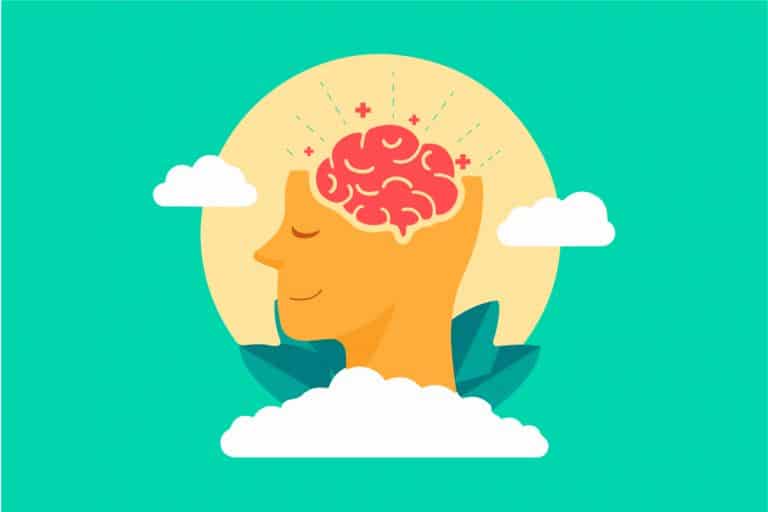Like the mutable rain frog, a shape-shifting amphibian that can change its skin texture from spiny to smooth in a matter of seconds, humans must also adapt to rapidly changing conditions to keep pace with a constantly evolving world.
While we cannot (yet) modify the texture of our skin, we can adjust our mindset toward change, and optimize it to conquer life’s inevitable challenges. One way to do this is through a “growth mindset”.
A growth mindset is neither a quick fix nor a single activity; it is a way of thinking and acting that encourages productive habits and behaviors. This article will cover everything you need to know about growth mindset and what steps you can take today to employ it to your advantage.
What is a Growth Mindset?
In general, a mindset is an established set of attitudes, especially a group’s social or cultural values, of which we are all part. When firmly established they create powerful incentives to adopt new or accept established behaviors.
A growth mindset, therefore, focuses on positive behavioral change and establishing new ways of thinking that enable a person to continually develop their abilities and meet life’s challenges.
What Does a Growth Mindset Look Like?
Those with a growth mindset tend to embrace challenges instead of shying away and persevere in adversity where others would give up. They focus more on the effort of the present moment rather than on the outcome.
A growth mindset differs from a positive mindset. Although one usually accompanies the other, growth mindsets center around the notion that capabilities are not genetic or static, but are developed as far as they are pursued.
A growth mindset means that you view your talents and capabilities as effort based, and that failure is simply a mechanism to obtain constructive feedback to develop and grow.
The term growth mindset was made popular by American psychologist Professor Carol Dweck in her 2006 book Mindset: The New Psychology of Success. Although much of Dweck’s research was conducted in the education field, the concept of a growth mindset can be applied to all challenges.
What is a Fixed Mindset?
As you might imagine, a fixed mindset covers the opposite characteristics, believing intelligence is static and very little can be done to improve a person’s abilities.
For a fixed mindset, feedback is seen as a judgment of intrinsic capability, since success is linked only to ability, not effort. Whereas those with growth mindsets believe that their weaknesses are temporary and can be improved to no longer be weaknesses, those with fixed mindsets focus more on avoiding their weaknesses while maximizing their strengths.
Failure is much more intimidating for those with fixed mindsets since it suggests that some things can never be overcome and that mistakes are the result of personal traits, not temporary experiences.
Those with a fixed mindset tend to focus more on the outcome and are thus more likely to give up. And because the outcome depends on a person’s skills, one might never be capable of developing, and as a result, efforts make little difference.
Growth Mindset Vs Fixed Mindsets
Fixed and growth mindsets are conceptual – no single mind operates in only one way. The success of others is defined not only by a simple transition from a fixed mindset to one of growth but by believing that change is possible over time.
In reality, we all exhibit some tendencies from both mindsets, and which one we adopt depends on many variables, including time-dependent factors such as sleep and hunger.
For example, when trying to repair a faucet on a Friday night after a tough week at work, when you’re hungry and want to relax, you may adopt a fixed mindset and give up at the first sign of trouble. “I’m not a plumber; I don’t have the skill or knowledge to fix this”.
When you return to the task the next morning, however, you will have greater motivation to persevere and fix it. Refreshed with energy (and coffee), you can muster the determination to apply a more growth-oriented mindset: “I don’t know how to do this, but I will look at a few videos and try”.
So when talking about growth mindsets, we are not imagining concrete qualities with clear and well-defined boundaries. Rather, we are talking about a network of thoughts and beliefs that ebb and flow depending on many variables.
Characteristics of Growth and Fixed Mindsets
The graphic below shows the common differences between fixed and growth mindsets. Remember that these are purely conceptual; you will likely have some elements of both.
When developing a growth mindset, our aim is to approach new challenges and obstacles with as many of the qualities on the right as we can.

We All Have Different Growth Baselines
Although we regularly shift our mindsets between fixed and growth, we all have differing baseline mindsets. Some are more naturally growth orientated, while others are more fixed.
This simply means that, when left alone without conscious input, we naturally tend more toward the mindset that matches our natural baseline.
When we talk about adopting a mindset, therefore, what we really mean, in a practical sense, is trying to adopt the productive characteristics of a growth mindset more frequently, and to consciously apply them across challenges we face.
So don’t think of your mindset as one of two extremes. Instead, think of it as a mix that is dependent on many variables, and seek to balance your baseline with growth-orientated traits.
Does Growth Mindset Improve Intelligence?
A growth mindset is often praised for its focus on increasing intelligence. This claim is considered controversial by other academics who have found evidence that IQ (a quantitive but limited measure of intelligence) is largely genetic and unable to change significantly.
While this may be true, IQ is a purely statistical representation of intelligence. When one talks about improving their intelligence in terms of growth mindset, they are not referring solely to IQ, but the ability to apply it more frequently combined with the motivation and will to learn.
Recent neuroscientific research has shown that physical change can occur in the brain via neuroplasticity – the capability to create new neural networks that facilitate learning. This might not translate to a higher IQ, but it may allow the brain to become more efficient for longer durations, thus increasing its ability to learn.
Benefits of Developing a Growth Mindset
The benefits of developing a growth mindset outweigh those from fixed mindsets, thus the interest in articles like these for ways to adopt it. Below are some of the key advantages that a growth-orientated mindset will develop.
1) Achieve More
Dweck’s research found statistical relationships between those who believe they can develop their talents and their tendency to achieve more, compared to those who feel their abilities are innate and fixed.
Those who develop a growth mindset see opportunities instead of obstacles and can muster a greater motivation to endure more formidable challenges rather than sticking to their comfort zone.
2) Learn New Skills
Those who believe that no amount of hard work will reflect meaningful change are unlikely to embrace any form of skill improvement.
With a growth mindset, however, comes the belief that most skills can be learned with enough time and practice. Most importantly, the magnitude of skill improvement depends on the amount of hard work put in, increasing both motivation and perseverance to learn.
3) Overcome Criticism and Setbacks
Failures are a part of life, but carry greater negative weight when we think of them as intrinsic and unchangeable, as opposed to temporary and able to be improved.
One of the most important qualities of all successful people is their capacity to endure criticism and setbacks (which contain valuable experiential information that can often only be obtained through failure) than their competitors.
When you think of failure as a temporary event caused by a transitory lack of required knowledge and experience, you see it as a condition of your environment, not your internal qualities.
4) Neuroplasticity Change
Neuroplasticity is the ability of neural networks in the brain to change, either through reorganizing or growth. While it was previously thought that once the brain had stopped naturally developing after childhood it could no longer grow, recent studies have found that an adult brain can still develop, albeit to a lesser degree.
When we learn and practice, and frequently repeat an action or thought pattern, we strengthen our neural pathways so that it becomes easier (and more efficient) the next time we do it. This is the foundation of the habit-building process, where easy and repetitive tasks are automated to free up mental resources for more pressing cognitive tasks.
For example, research by Rosenzweig, Bennett, and Diamond (1972) showed that two groups of rats, one of which lived in enriched conditions (EC) while the other lived in deprived conditions (DC), changed the physical properties of their brains over just 60 days.
The rats living in enriched conditions developed heavier frontal lopes and more acetylcholine receptors. The total average brain weight for EC rats was 7-10% higher than DC rats, with EC rats showing an incredible 20% increase in the number of synapses.
Whether evidence for neuroplasticity proves the capacity for increasing intelligence is still unproven, but recent scientific progress does at least prove that the brain is physically able to grow and reorganize in a way that seems to suggest that developing new skills is indeed possible.

How to Develop a Growth Mindset
Developing a growth mindset is neither quick nor easy. It is a lifelong endeavor that will slowly compound to produce significant results over time and with experience. It should be part of your personal development plan (check this article for the ultimate guide to personal development).
The tips below present the five most powerful changes you can start performing today to orientate you toward a stronger growth mindset.
1) Identify When Your Mindset is Fixed
In order to change, you first have to know your current position. Mindfulness – the conscious awareness of your present thoughts and feelings – is the first step.
The type of mindset you adopt in response to individual challenges has already been programmed into your subconscious mind through a mix of genetics and life experiences, and manifests itself through the habits and thought patterns you naturally respond with. To change this, we must catch when we are allowing our subconscious mind to drive decisions.
For example, if you catch yourself engaging in negative self-talk, such as “this is too difficult for me, I’ll never be able to do it”, the first step to change is to be mindful that this is your fixed mindset talking.
Counter these thoughts with conscious affirmations, such as “this is my fixed mindset talking. I have the ability and power to change if I dedicate my efforts toward it”.
Keep in mind that the mindset you possess for any given situation depends on many factors. Identifying which external factors may be negatively affecting you, such as hunger, stress, or sleep deprivation, will also aid in regaining conscious awareness of your mindset.
2) Focus on Effort and Attitude
According to Dweck, “praising students for the process they have engaged in – the effort they applied, the strategies they used, the choices they made, the persistence they displayed, and so on – yields more long-term benefits than telling them they are ‘smart’ when they succeed”.
Dweck also states that “the teacher should portray challenges as fun and exciting while portraying easy tasks as boring and less useful”.
Effort is important. But more crucial is a student’s attitude toward learning new skills and their perspective of failure as a part of the learning process.
Ultimately, you have to see the value of your growth in the journey, not the destination. Achieving a goal is all or nothing; there is little progress to show until it is complete. The journey, however, provides continual feedback and small wins, increasing your motivation and resistance to setbacks.
3) Seek Feedback
Understanding that a growth mindset acknowledges a lack of experience and skill as temporary encourages you to chase constructive criticism and feedback that will pave the way toward improvement.
You can only change what you can measure. It is one of three fundamental components of the build-measure-learn feedback loop, made famous in Eric Lies’s legendary book “The Lean Startup”. To build better, you have to apply learned lessons, which come from measuring progress.
You can measure your progress by creating goals and tracking them. We know learning new skills is critical for a growth mindset, so create targets for your goals, such as reading 20 pages of a book a day, and tracking your progress at the end of each week.
4) Growth Mindset is a Long-Term Game
Remember, worthwhile behavioral change takes time, otherwise we would all be perfect. A growth mindset is not black and white but an analog scale continually moving up and down over time.
Your aim should not be to always think in terms of a growth mindset (it is impossible to be growth orientated 100% of the time) but to become slightly more growth orientated to issues that will benefit from it.
Small wins and successes compound over time to result in big changes. It’s a good game played slowly.
5) Always Keep Learning
Growth mindsets develop over time, with multiple wins building upon each other for greater confidence and success.
By always learning new things, you continually reinforce your capability to overcome new challenges.
Look at your goals and devise activities that will enable you to learn new skills or improve existing ones. If one of your goals is to learn the piano, and you’ve previously been limited by a fixed mindset by believing you were too old, pick an easy song and learn it little by little.
You should acknowledge the progress you make every day, no matter how small it may seem. Make a journal and note the small wins, such as first the first ten seconds of that piano piece or having read another chapter on leadership.
Conclusion
To develop a growth mindset, you first need to accept that it is possible to learn and develop new qualities and that doing so depends on the level of effort you decide to exert.
Your mindset will ebb and flow between a growth and fixed mindset and is dependent on many variables, including external factors that may affect you significantly one day but not another.
The first step is to become mindful of which mindset occupies your current thoughts and actions at any given moment, and that you can orientate yourself more towards a growth mindset.
Follow the steps above that will help develop a growth mindset, and create a plan to test, measure, and apply the lessons learned to continually improve.
But most of all, remember this one thing – change is possible only as far as you genuinely believe it to be. If this doesn’t come easy to you, then you will need to prove it yourself, by setting small wins and achieving them frequently. Over time, your subconscious programming will align itself with your conscious thoughts.
Let me know your thoughts in the comments down below!
FAQs
What is a growth mindset
A growth mindset is the belief that your skills, abilities, and intelligence can improve with effort, practice, and learning. Instead of seeing talent as fixed, you view challenges, mistakes, and feedback as opportunities to grow. This mindset helps you approach obstacles with persistence instead of giving up.
How is a growth mindset different from a fixed mindset?
A fixed mindset assumes abilities are static—either you’re good at something or you’re not. People with fixed mindsets avoid challenges and fear failure because they see it as a reflection of their identity. A growth mindset sees abilities as developable, embraces challenges, and interprets failure as part of the learning process.
How do I start developing a growth mindset?
Start by noticing when fixed-mindset thoughts appear (“I can’t do this”). Replace them with growth-oriented alternatives (“I can learn this with practice”). Focus on effort instead of perfection, seek constructive feedback, track small wins, and build habits that reinforce learning. Growth mindset is developed through repetition, not overnight change.






